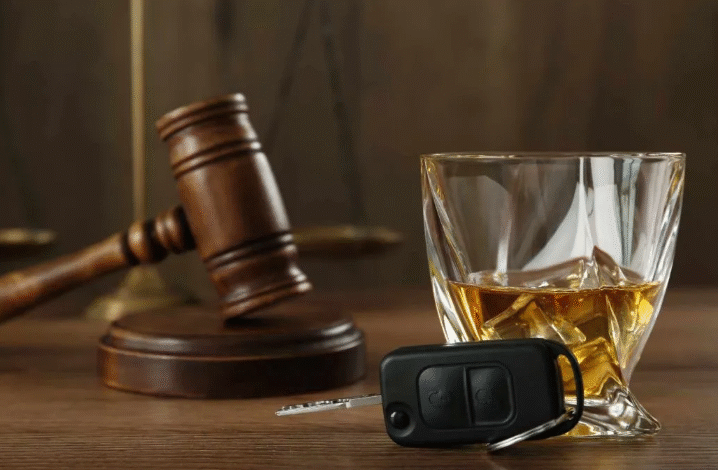First-Time DUI? Key Things to Know Before Court

A first-time DUI (Driving Under the Influence) charge can be overwhelming, confusing, and frightening — especially if you’ve never had any prior legal trouble. One moment you’re driving home after a night out; the next, you’re facing serious legal consequences that could impact your freedom, finances, and future.
The good news? You’re not alone, and there are steps you can take to protect yourself. If you’re facing a DUI for the first time, here’s what you need to know before stepping into the courtroom.
1. Understand the Severity of a DUI Charge
First, it’s important to recognize that a DUI is not a minor traffic violation, it’s a criminal offense. Even if it’s your first time being charged, you could be facing:
- Fines ranging from hundreds to thousands of dollars
- Possible jail time
- A suspended driver’s license
- Mandatory DUI education programs
- Probation
- Higher car insurance premiums
- A permanent criminal record
The consequences vary by state, but every jurisdiction takes DUI offenses seriously. The more informed you are going into the process, the better your chances of minimizing the damage.
2. Know the Key Terminology
Before your court appearance, make sure you understand some of the key terms you’re likely to hear:
- BAC (Blood Alcohol Concentration): A BAC of 0.08% or higher is considered legally impaired in most states.
- Implied Consent Law: By having a driver’s license, you’ve legally agreed to submit to a breath, blood, or urine test if suspected of DUI. Refusing can lead to immediate license suspension.
- Arraignment: Your first court appearance, where you’ll enter a plea (guilty, not guilty, or no contest).
- Diversion Programs: In some states, first-time offenders may qualify for a program that can lead to charges being dropped upon successful completion.
3. Consider Hiring a DUI Lawyer (And Why You Should)
While you technically have the right to represent yourself, it’s not recommended — especially for a criminal charge like DUI. An experienced DUI lawyer Toronto can:
- Examine the details of your arrest for procedural errors
- Challenge the accuracy of your breathalyzer or field sobriety tests
- Negotiate for reduced charges or alternative sentencing
- Help you apply for license reinstatement or a restricted license
- Represent you at administrative license hearings and in court
In short, a good lawyer can often save you money, time, and stress — and may even keep you out of jail.
4. Don’t Miss Your Court Date
This may sound obvious, but it’s critical: Show up on time and dress appropriately for court. Missing your hearing or arriving late can result in:
- A bench warrant for your arrest
- Additional charges
- Harsher penalties
Dress conservatively, speak respectfully, and treat the judge and court staff with courtesy. First impressions matter.
5. Be Prepared for the DMV Process
Many people forget that a DUI case involves two separate legal processes:
- Criminal Case – Handled in court
- Administrative License Suspension (ALS) – Handled by your state’s Department of Motor Vehicles (DMV)
In some states, you must request a DMV hearing within a certain number of days (usually 7–10) to contest your license suspension. If you don’t, your license could be automatically suspended — even if you’re later found not guilty in court.
Ask your attorney to handle this or assist you with the paperwork and deadlines.
6. Explore First-Offender or Diversion Programs
Depending on your jurisdiction and specific case details, you may be eligible for a diversion program or first-time offender program. These programs often include:
- DUI education or treatment
- Community service
- Probation without jail time
- Ignition interlock device installation
Upon successful completion, charges may be reduced or even dismissed. These programs are typically only available to those without prior convictions and who didn’t cause injury or property damage.
7. Know What to Expect at Your Arraignment
Your arraignment is your first official court appearance. At this hearing:
- The judge will read your charges
- You’ll be asked to enter a plea
- Bail conditions may be reviewed
- Future court dates will be scheduled
If you plead not guilty, your case will proceed to pretrial and possibly trial. If you plead guilty or no contest, the judge may sentence you immediately, or schedule a sentencing hearing.
Pro tip: Never enter a plea without first speaking to a lawyer. There may be opportunities to reduce or dismiss charges that aren’t obvious at this early stage.
8. Don’t Make Things Worse While Waiting for Trial
While your case is pending, it’s vital to stay out of further legal trouble. Here’s what to avoid:
- Driving with a suspended license — this is a serious offense
- Missing DUI classes or evaluations
- Failing to comply with bail or bond conditions
- Getting another DUI
Many judges consider your behavior while awaiting trial when deciding your sentence. Show that you’re taking the situation seriously by complying with all requirements and being proactive.
9. Understand Possible Sentencing Outcomes
If you’re found guilty or plead guilty, your sentence may include any combination of the following:
- Fines and court fees
- Driver’s license suspension (30 days to 1 year or more)
- Jail time (often avoidable for first-time offenders)
- Probation
- Mandatory DUI school
- Ignition interlock device installation
- Community service
Sentences vary based on your BAC level, whether you refused testing, if there was an accident or injury, and the specific laws in your state.
10. Learn from the Experience (and Move Forward)
A first-time DUI can feel like the end of the world — but it’s not. Most first-time offenders don’t serve jail time and are able to move on with their lives. That said, the consequences can follow you for years if you don’t take the right steps.
Here are some ways to recover and reduce the long-term impact:
- Complete all court requirements on time
- Attend DUI education classes or treatment programs voluntarily
- Get your license reinstated legally
- Avoid future offenses at all costs
- Speak to a lawyer about record expungement or sealing, if available
Final Thoughts: Be Proactive, Not Passive
A DUI charge is serious, but it’s not the end of the road. The worst thing you can do is ignore it or hope it goes away. The best thing you can do is educate yourself, hire an experienced DUI attorney, and take control of your situation.
Every state’s laws are different, but taking a proactive approach can help you minimize the damage, preserve your driving privileges, and protect your future.




